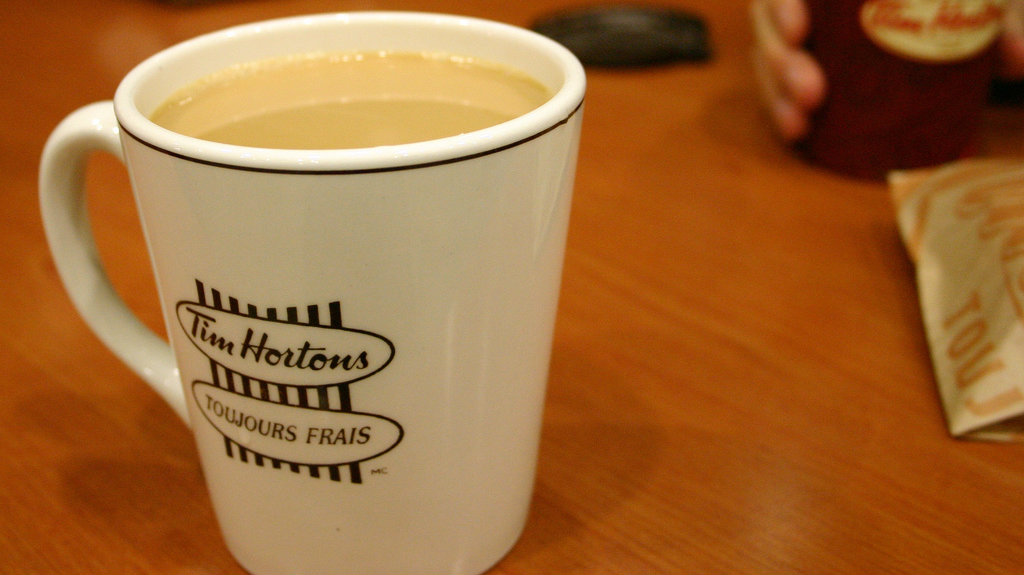Earlier in the year, Restaurant Brands International Inc. (TSX:QSR)(NYSE:QSR) inadvertently created a tasty value opportunity for investors by arguing publicly with its franchisees over Tim Hortons employee issues. Returning to the stock today, it appears that those unwanted PR concerns, as well as new ones, continue to be affecting share prices — but not in the same way.
Now Tim Hortons is set to expand into the Chinese market, with 1,500 stores to open there over the next 10 years. Will this push stock in Restaurant Brands to $100, as some commentators have been predicting? Or is it yet another PR stunt? Let’s chew it over and see if this stock is a buy.
Did too many investors dine out on cheap shares?
It wasn’t so long ago that this was a cheap and tasty-looking stock. But fast forward to present day Canada, however, and Restaurant Brands is now overvalued by over 50% against its future cash flow value, and its multiples are unappetizing.
This is simply not a good value stock at present. Its P/E of 20.94 times earnings might be barely acceptable by TSX standards, but look at that PEG of 8.1 times growth. And if that sounds astoundingly high to you, check out its P/B of 7.34 times book.
A 2.5% expected annual growth in earnings doesn’t do much to whet the appetite either, and, unfortunately, Restaurant Brands is also holding a fair amount of debt. In fact, that level of debt is 285.6% compared to Restaurant Brands’s net worth.
While a 2.95% dividend yield (up to 3.13% next year) may have sounded like a big enough snack earlier in the year while Restaurant Brands was a cheap and undervalued stock, investors may want to wait for a dip before they pack this one into their TFSA or RRSP.
But wait — some people are calling this stock a buy!
Some folk are calling for this stock to hit $100. If that happened, buying even now at $81.11 would bring brave investors some serious capital gains. But will it happen?
It’s a nice idea to think that lower coffee prices may boost Restaurant Brands’s share price, but the fact is that Tim Hortons — the subsidiary that would benefit the most from falling coffee prices — accounts for only around one-fifth of its parent company’s income, so the effect is likely to be negligible.
Will the Chinese expansion finally push the stock to $100 a pop? It would be good news for shareholders if that were to happen. But it feels as though the announcement is designed to do just that.
And while Burger King may be racking up some meaty profits down in the U.S., the fact is that one successful outlet and a big news story alone may not be enough to make up for the stock’s overvaluation, the risk of that high level of debt, or ongoing Tim Hortons PR hiccups (to put it nicely). At the end of the day, this stock is about as appealing as a Timmies poutine.
The bottom line
Remembering the fact that there are some big-name eateries under the Restaurant Brands aegis may go some way to reassuring those invested in the stock to stick with it. Potential investors should consider the considerable upside that may be yet to come from a Canadian food and drink outlet this stable. However, sharp-eyed investors should comb through its multiples before buying. After that, if you feel like investing in a stock that’s seven times more expensive than it should be and pays a middling dividend, go ahead.








